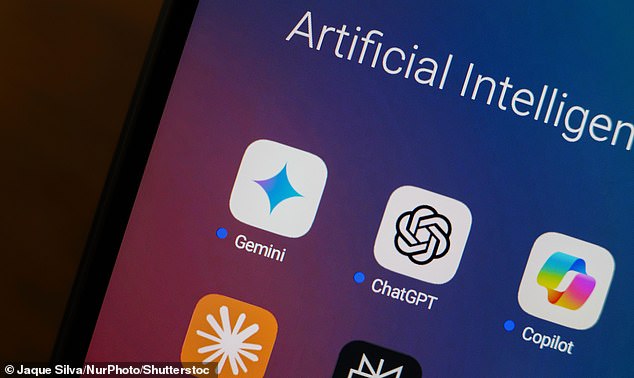Artificial Intelligence (AI) is emerging as a transformative force comparable to previous General-Purpose Technologies (GPTs) that drove past industrial revolutions, poised to bring about even greater changes in Africa.
Brad Smith, the co-chair and president of Microsoft, emphasized the significance of this technology when he stated, "Throughout history, technological advancements have reshaped economies," as he elucidated.
He states that the initial Industrial Revolution was fueled by advancements in ironworking, the subsequent one by electrification and machinery, and the most recent revolution—which has unfolded over the past five decades—by innovations in computer chips and software.
Smith points out that whenever a new Industrial Revolution occurs, people often focus on identifying the key leader," he says. "However, historical evidence shows that the nations making the greatest strides are typically those where the technology becomes broadly disseminated and embraced.
Since technology transforms all aspects of an economy, the nation that utilizes it extensively will reap the greatest benefits.
This can be clearly seen in the case of electricity: gross domestic product (GDP) grows as electricity is adopted and used. “There is no country where this is the exception,” Smith states. “And the same is true in Africa.”
He notes that the secret to achieving future success lies in implementing versatile technologies.
In this emerging AI age, we begin with the firm belief that it represents the next evolution of GPT.
According to Smith, countries aiming to successfully adopt a GPT must excel in four areas.
The initial point is the technology itself. "As it happens, each GPT relies on a technological framework. This gives rise to a novel economic landscape because each level within this framework corresponds to emerging businesses, different kinds of enterprises, and distinct employment opportunities."
The current AI technological framework comprises three tiers: infrastructure, platform, and applications.
“IS has an enormous presence,” Smith states. “It demands the billions of rands we’re putting into data centers. Similar to how you cannot generate electricity without power plants, artificial intelligence cannot function without these data centers.”
The platform level comprises both open-source and proprietary models designed to utilize data for training purposes. "It is here that a fresh wave of AI platforms and software solutions are coming into existence."
On top sits the application layer, enabling individuals to accomplish their tasks.
"Electricity brought about transformative changes at the level of appliances, and similarly today, with the AI technology stack, it is the applications that people interact with and utilize," Smith explains.
To develop a new AI-driven economy, you must have all three elements in place to kickstart the cycle. The infrastructure enables the development of models, which permits individuals to create applications—subsequently, this fosters more extensive expansion of the infrastructure.
He points to the South African Revenue Services (SARS) as a premier instance of an organization leveraging technology, including artificial intelligence, for tax collection purposes and transforming citizen interactions with governmental bodies.
When developing a new economy, both governments and businesses must focus not only on mastering the technology but also on understanding economics thoroughly, according to Smith.
“The economics of AI comes down to economic structure, financial architecture and business models.”
For instance, he points out that each technology stack includes an economic framework, where components at the base tend to be costly, whereas those at the summit are relatively inexpensive.
“It is the same with AI: you see billions of dollars invested at the infrastructure layer; and find students can start to build new companies relatively cheaply at the applications layer.”
Following this, it's essential to develop a financial framework. Smith points out that companies such as Microsoft are collaborating with partners to fund the establishment of AI infrastructure globally.
This usually begins with private companies and private funds, followed by sovereign wealth and additional public financing. This structure isn't solely aimed at releasing capital; it also focuses on stimulating demand.
When nations struggle to gather the necessary amount of capital, Smith suggests that they might consider forming partnerships within geographical regions. "An alternative approach to speed things up is increased usage by the public sector," he adds.
The government plays a crucial role in initiating this process, primarily through policy formulation and ensuring that all aspects of the public sector adopt the technology.
Developing appropriate business models is the ultimate, and essential, stage for achieving sustainable success. As Smith highlights, "We can gain insights from history showing that these business models tend to evolve."
The third crucial step for capitalizing on the emerging AI economy involves developing skills.
This is merely practical," argues Smith. "If it's crucial for something to be utilized across the entire economy, then the expertise needed for this should also be widespread throughout the economic landscape.
The earlier Industrial Revolutions tackled this issue through technical schools and apprenticeships during the first revolution; public universities funded by federal lands along with industry standards in the second; and workforce training alongside computer science programs in tertiary education during the third.
When considering large-scale skill development for the age of artificial intelligence, Smith argues that we require three categories of abilities: first, AI literacy, enabling individuals to utilize these technologies effectively in their tasks; second, AI engineering, an extension of traditional computer science; and third, AI system design, aimed at empowering non-technical professionals with the knowledge needed to integrate AI into strategic planning, operational procedures, and process optimization within businesses.
"Each nation requires a comprehensive AI talent plan to evaluate market demands and increase AI literacy," according to Smith.
This would cover more than just universities and technikons; it should also incorporate programs such as South Africa’s Youth Employment Scheme (YES), aimed at wider skill development.
For a technology to become truly pervasive, it must have a level of social acceptance, Smith says.
And for a technology to gain social acceptance, it needs to be both beneficial and reliable.
The development of a genuine strategy and framework of trust is essential for the future of AI.
To establish this trust, privacy, digital security, and ethical AI are essential, he notes.
This is precisely why we're developing AI governance from scratch, starting with internal corporate policies and extending to global regulations.
According to Smith, sustainability is a crucial component of the trust formula. He emphasizes, "It’s impossible to adopt a responsible stance towards AI without tackling the necessity for sustainable AI practices."
To turn the AI economy into a reality, companies and nations must concentrate on every aspect. "This is incredible, exhilarating, and intimidating," Smith remarks.
He emphasizes that the key to accomplishing everything lies in being inspired. "Consider all the incredible possibilities we have with AI."
“However, while we ought to find motivation in every potential success, we should equally draw inspiration from each possible failure.”
For instance, he highlights that it has been 140 years since Thomas Edison brought electric power to lower Manhattan. Nevertheless, currently, a significant portion of Africa’s population remains without access to electricity.
“This is a cautionary tale that should inspire is to do better,” Smith says.
We can aim higher, be more daring, and chase after something even Edison couldn’t have imagined.
Provided by Syndigate Media Inc. ( Syndigate.info ).

